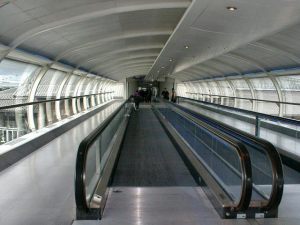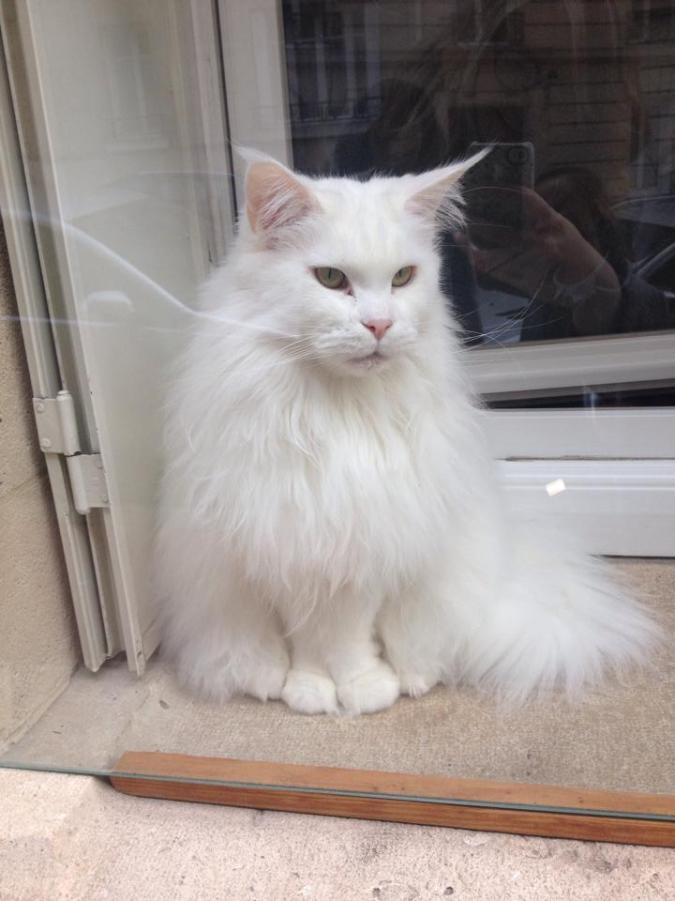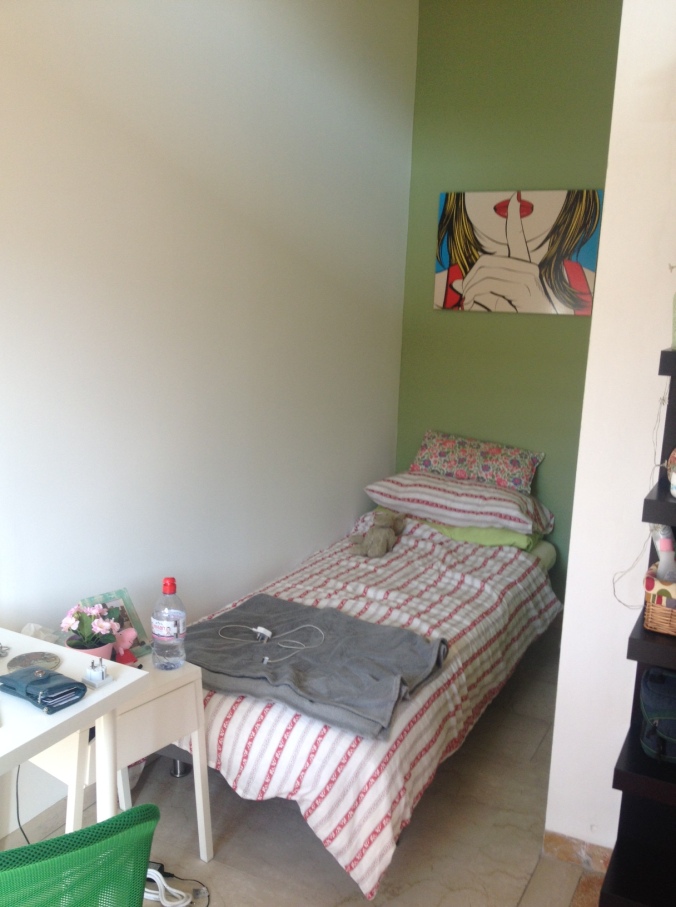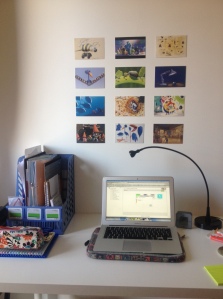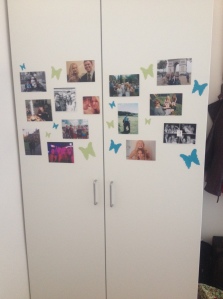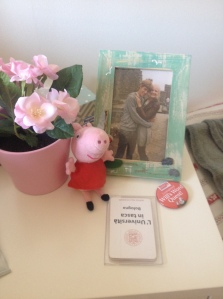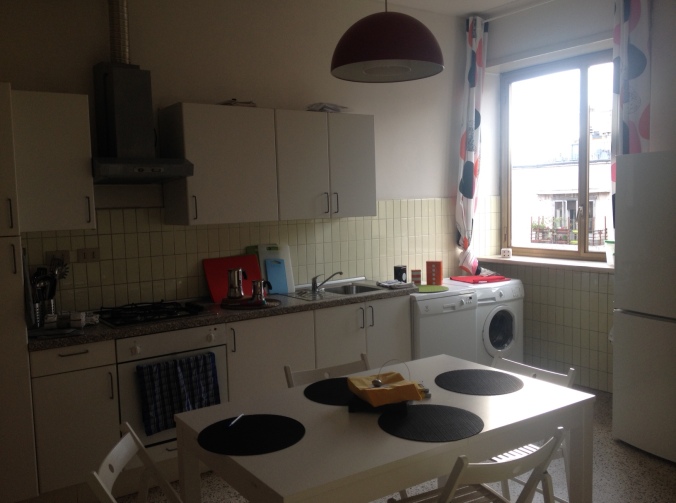This title is perhaps the most precise summary of the year abroad that I have written so far. Which is a shame, because they aren’t actually my words. This phrase was the inspired thought of dear Rebecca, as we sat together on a metro in Paris, pondering the confusions of the year and wondering how we might ever find somewhere to call home there.
It is a short life. You have to go to a new country and essentially create yourself as a bureaucratic, systematic, (HYDROMATIC) human being there, a process that basically involves lots of forms. Lots. More than you can imagine. I’m talking a metric shit ton of forms. A short life contains just as many forms as a full-length life, just in a much shorter space of time. It’s form density. There is a home to find, bank account to open, phone contract to sign for, plus friends to make, supermarkets to find, favourite cafés to discover, language to learn, train network to decipher. All things that are already a part of your current life, but that you have to do all over again in a new country for it to ever feel like home.
Unfortunately from a paperwork point of view (and it’s surprising how fast this becomes your primary point of view), I had decided to split my year abroad. But happily, Rebecca had been equally naïve, and even more happily, our second placements were both to take place in Paris. And so, whilst the weight of forms hung heavily over me as I jetted off to Paris last week, it was lifted by the comfort that at least this time I wouldn’t be alone whilst getting my life in order. Almost falling off the metro due to the weight of your suitcase is a bit tragic and embarrassing alone, but with a friend it’s mostly just funny, especially when it’s the friend doing the falling (sorry Bec).
I cannot mock her too harshly because I made a much greater error shortly after arrival at Paris Charles de Gaulle, the largest and most bizarrely empty airport I’ve ever been to, in accidentally abandoning my rucksack on a bench. This rucksack contained my laptop, money, phone, but most crucially a huge amount of, you guessed it, forms, without which I might as well have got straight back on the next flight to England. I was convinced that, in the 10 minutes before I realised it was missing, it would almost certainly have been blown up by a bomb squad, but to my great relief and some quite impressive traversing of floorscalators, it was exactly where I left it, forms and all.
And thus, generously hosted by Walter, our flat hunt commenced. Paris is a horribly cruel city in which to find an apartment. Everywhere you look there are apartments. Taunting you, because none of them seem to be actually available to rent, and certainly not for a short period to students. The subject of how to find a Paris apartment has been covered in numerous blogs, and so I’m not sure I have much to add to the wealth of advice out there except my own anecdotes.
The very worst flat-viewing experience we had was also the first. Having wildly underestimated the size of Paris from our map, we thought we would stroll from the Eiffel Tower down to the south-east of the 5th arrondissement, which was a nice idea until it started raining chats et chiens and we realised that Paris is actually pretty sizeable. Not only had the landlord told us the wrong address, but when we arrived we were surprised (naïvely, I now realise) to find that there were other potential tenants viewing it too. Within a minute of entering, these two jeunes hommes had declared that they were willing to take it, and would it be okay for them to send their paperwork that afternoon? We exchanged a glance and quickly left, hot-footing it to the nearest McDonald’s. For the free WiFi, I tell you. And okay, also for a McFlurry and a small cry.
This was probably the lowest low, however, apart from a time where a woman on the phone would not stop repeating “c’est pas pratique!” (It’s not practical!) when we called to enquire about her apartment, where one person would have to traverse the other’s bedroom to get to their own. This was clearly listed in the advert, and so I’m not sure why this lady was quite so keen on insisting on the impractical nature of her apartment, or who exactly she thought it would be practical for, but I quickly gave up and moved on.
Eventually, we found our luck with an advert posted on the announcement boards at the American Church in Paris. This was something we’d read about but that I’d hardly believed could actually be a source of success, but we’re really happy with our newfound home, even if we haven’t moved in yet. More details and photos to come when we have, but for now I shall just share my own personal point of glee- it has a balcony with a view onto the Eiffel Tower. I feel like I’m winning the short life game already.
However, one big hurdle jumped and I remembered that I still didn’t really count as a person in France because I didn’t have any of the human being numbers that my new forms required. A phone number. A social security number. A bank account number. Not only does each of these things take a good hour of research, another very decent hour of queuing, and a conversation with an uninterested French person to sort out, but you are somehow supposed to intuitively know the order in which to get them. I couldn’t get a bank account without an address, nor a SIM card without a French bank account. It is a horrible bureaucracy trap, especially because the French bloody love forms. They adorent forms. When opening my bank account, I was asked for a photocopy of my landlady’s ID. To be clear, I wasn’t opening the account for her. This was just something they wanted 3 copies of.
Whilst we’re at it, why does everybody want 3 copies of everything? I understand one for them, one for me, one for… who? It remains one of the great mysteries of our time. I can only conclude that somewhere in the middle of rural France there is a mad aristocrat called Monsieur Bureaucratie, to whom everyone sends their third copies. He then proceeds to fill his great country chateau with them, basking in a room filled with forms, and the warm, inky scent of photocopier paper.
There are no shortcuts to the successful short life, but luckily there are friends, food and cheap wine. Not to mention beautiful cats. Paris, you’re next.
